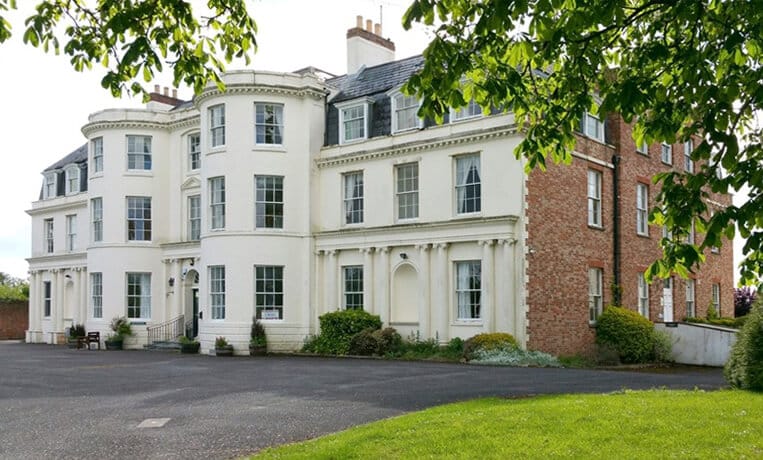Addiction is a disease that millions of people across the world struggle with every day. But recovery is always possible with rehab.
Whether it’s alcohol misuse, abusing illicit substances or just a problem with addictive behaviours, many of us know how difficult it can be to fight off addiction.
Finding the right rehab clinic can be tough if you don’t have the in-depth knowledge you need, but we are here to speed up the process.
Any information you provide is completely confidential, and your treatment will also focus on identifying any mental health issues that may have played a role in your alcohol addiction or drug addiction.

At Rehab 4 Addiction, we know that it is difficult to gauge at which point you should seek out help for your drug and alcohol misuse instead of facing it alone.
If you are seeking a drug and alcohol rehab centre in Colchester, we are commited to aiding you in your recovery journey.
Rehab is most useful to those who:
In many ways, rehabilitation treatment of addiction offers you the best chance for addiction recovery.

If you are considering seeking professional help for your alcohol or drug addiction & abuse from rehab clinics in Colchester, then it will be crucial for our team of addiction specialists at Rehab 4 Addiction to determine how severe your addiction is.
This is essential as it aids us in making progress towards your sobriety.
In order to make an appropriate diagnosis, addiction treatment specialists will need to assess your addiction history, the current state of your addiction, the presence of any co-occurring disorders and several other points of relevant information.
There are several different tests that may be used during the rehab admissions process to help determine which mode of drug addiction treatment & rehab will be best for you.

Sometimes, when an individual is suffering from addiction they may not be aware they need rehab.
Their denial could be fuelled by close friends and family around them who have failed to address the issue.
This may be because they simply have not noticed a change in the behaviour of the individual who is addicted, or they do not feel it is their place to address the issue.
A person is always more likely to be successful in their recovery if they have the support of their family and friends.
This is why at Rehab 4 Addiction we endorse the idea of setting up an intervention to allow the patient to make a choice between opting for treatment of addiction or facing the consequences.
An addiction intervention is where individuals close to the person addicted intervene in an attempt to aid in their recovery process and stop the cycle of addiction that they are currently in.
This intervention will certainly not involve shifting blame onto the individual, as addiction is a disease of the brain.
It should revolve around nurturing and reassuring the person that you only have their best interests at heart.
After you’ve let them know you’re worried about them, you can see if they’d be open to discussing rehab.

If you are apprehensive about staging an intervention yourself, you can avail of the services of a professional interventionist.
This person will be instrumental in aiding a family understand the substance user’s behaviours and advising on the best rehabilitation options.
They are useful in helping the family of an to find healthy ways of discouraging their behaviour without being condescending or threatening.

Your rehab will assess you to ensure you receive a personalised care plan.
This will depend on:
You’ll discuss your plans for withdrawal management and whether we need to consider a high, medium or low level of care.
Your rehab will determine whether you’ve been physically impacted by their substance abuse.
If you need a medical detox, this can be overseen at rehab.
Your rehab will discuss dual diagnosis, and find treatment techniques for any co-occurring mental health disorders.
These could include depression or anxiety.

In the addiction recovery process, your rehab will help you understand your willingness to commit yourself and your desire to recover.
Motivational enhancement strategies can help boost your morale.
It’s important to prepare and prevent the possibility of relapse with a good plan and coping mechanisms.
A relapse prevention plan will include all of the tools and resources you can use if you feel tempted to use or engage in the addictive behaviour or substance.
It’s vital to have a structured recovery environment during and after rehab.
A good support network includes people and places that encourage your sobriety:

At Rehab 4 Addiction, we fully understand that addiction is not, for most people, experienced by itself.
There are often patients who experience negative mental health alongside their addiction.
This can come under the term dual diagnosis.
This simply means that their addiction is a symptom of underlying mental health problems and therefore full addiction treatment will also require proper mental health treatments or even a mental health treatment hospital.
Rehabs often treat mental health disorders like depression and anxiety to bipolar disorder and schizophrenia.
In this sense, we are able to cater to patients with evidence-based mental health treatments in order to help ease their symptoms and encourage them further towards recovery.

At Rehab 4 Addiction, we advocate for withdrawing completely from harmful substances, known as abstinence.
Residential rehab is the best way to ensure a substance-free environment during your addiction recovery.
By disengaging completely with drugs and alcohol, not only will the patient will be able to focus wholly on their recovery, but their relationships, self-esteem and physical health have the chance to improve dramatically.
The chance to practice sobriety is one of the many benefits of choosing from the residential rehab facilities in the Colchester area.
A residential treatment programme also offers care from dedicated addiction specialists and can be considered to result in higher rates of successful recovery.
Although most inpatient rehab centres allow visits from family members, for some it can feel like an isolating experience as you are removed from your natural environment.
In this way, if you opt for outpatient rehab treatment, you will be able to schedule your recovery process around your daily habits and your routine.
This means you will not have to completely uproot your life or take time off of work.

So why opt for attending private rehab when you have the option of council-funded rehab?
Firstly, private rehabilitation offers tailored treatments that are customised to fit your needs.
You will be able to undergo a medicated detoxification rehab treatment programme before getting to the root cause of your addiction.
Accessing a private rehab for the entire rehabilitation phase may seem like an expensive option.
However, private rehab facilities have many benefits over statutory drug rehab services.
For instance, you can begin rehab treatments straight away.
Council-funded drug & alcohol treatment in Colchester may mean you may be subject to a waiting list before you become eligible for treatment.
However, it is undeniable that many people recover thanks to the support offered through free and NHS-run addiction treatment services, such as those offered at Colchester General Hospital and other NHS Foundation Trust locations.
The addiction counsellors and support staff who work at these locations are just as skilled and qualified as those who work for private addiction treatment centres.
Several publically or charity-funded alcohol and drug rehab services operate throughout Colchester, including:
Address: 5a Queen St, Colchester CO1 2PG
Telephone: 01206 766 096
Website: http://www.openroad.org.uk/
Address: High St, Colchester CO1 1TB
Telephone: 07598 932 988
Website: https://www.openroad.org.uk/our-services/sos-buses-and-festivals/sos-buses/
Address: Brookfields Hospital, 351 Mill Rd, Cambridge CB1 3DF
Telephone: 01223 723 020
Website: https://www.changegrowlive.org/
You can also reach out to a number of helplines, including Mind UK, YoungMinds, Rethink Mental Illness, Samaritans and Papyrus, SMART Recovery or find an Alcoholics Anonymous Colchester (based on the 12 steps involving a higher power), Narcotics Anonymous, Alateen or Cocaine Anonymous meeting near you.
The NHS are also there to help you.
Other organisations include Turning Point and We Are With You.
Organisations and rehabilitation services in Colchester are led by guidelines set by the National Institute for Health and Care Excellence, NHS Foundation Trust and the National Association for Children of Alcoholics so you are in good hands with person-centred care.
Ultimately, whether you choose a private or a council-funded treatment will depend on your individual preferences, the severity of your addiction and your financial situation.

One of the primary concerns of those who are considering attending an alcohol and drug rehab Colchester is the price of doing so.
There is no uniform or set price for attending rehab.
Cost is adjusted according to:
For those who need a 10-day drug detox with a single occupancy room, the lowest price offered will likely be £3,000 whilst the highest will be around £6,000.
The cost of a multi-occupancy room will often fluctuate between £2,000-£4,000.
If you believe that you will reap more benefits from a 28-day stay, then you should expect to pay somewhere between £8,000-£12,000 for a single occupancy room, or about £6,000 for a multi-occupancy room.
Health insurance can also be used to address the cost of rehabilitation services, although precisely how much will need to be discussed with your health insurance provider.
In other cases, those who seek a high level of independence in their recovery choose to complete a home detox.
If you decide to choose this option the cost is roughly £1,500.
Rehab can last a varied amount of time depending on your addiction journey so far, your history of addiction and how severe it is, which addiction treatment centre you choose and what style of treatment you need.
Inpatient treatment typically lasts around 28 days, although some short detox-only programs can last as little as a week.
Outpatient treatment at rehab is typically longer due to its less intensive nature, with courses typically ranging from several months to a year or more.

Just as not everyone’s journey with addiction is the same, no rehab centre is exactly the same and each will offer different treatment options and rehab treatment programmes.
Whilst a large portion of rehabs advocate for a 12 step approach some others adopt a therapeutic approach.
There are a few things you should consider before narrowing down your choices and committing yourself to a quality addiction treatment programme.
It is recommended that you select a rehabilitation service that has a substantial and credible track record.
If a rehab has been running for at least 20 years there is more chance that you will receive high-quality support.
Moreover, you should determined whether the rehab you are selecting has a solid success rate as well as a good reputation.
In terms of cost, you will also need to make sure that your rehabilitation experience is financially viable for you and will not plunge you into debt.

If you have been using alcohol or certain drugs for a substantial body of time, you can become physically dependent on alcohol or other substances.
In this case, you will need to detox at rehab from these substances in order to recover from them.
Despite the necessity for a detoxification process to occur, many of those who are addicted to drugs and alcohol cannot pay to be monitored during this process and so they choose to undergo your detoxification programme at home.
However, detoxing at home is only viable under certain conditions.
This is become some addictions cause extreme withdrawal symptoms that can be so severe they result in death.
Some of these symptoms rehab can treat are:
With the risk of such symptoms, it is much better to be under professional supervision where you will be monitored safely.
It is a preferable option to quitting cold turkey as this is an extremely risky thing to do.

We only ever recommend rehabs that can offer outstanding free aftercare services.
Unfortunately, if you have gone through rehab, there is always the possibility of relapsing.
This is why we offer a relapse prevention plan for our clients so that they can sustain their sobriety and commit to a life of prioritising their recovery.
Rehab will help you to make a written document which includes your triggers, cravings and coping strategies.
This will help you to avoid potential relapse situations, deal with them effectively when they cannot be avoided, and minimise the damage when relapse has occurred.
While making a relapse prevention plan, professional rehab mentors will evaluate your very own set of experiences and whether or not you have previously relapsed.
If you have relapsed previously, we should have the option to recognise when another relapse could be approaching.
Finally, your plan will keep you aware of the alternatives to drugs and alcohol, as well as provide you with a clear and concise support network to lean on in difficult times.
All of this will help you to maintain your long-term recovery after rehab.

When discussing solutions for recovering addicts, it is important to not neglect other forms of treatments.
Three extremely popular support groups are Alcoholics Anonymous, Narcotics Anonymous and Cocaine Anonymous.
These alternatives to rehab, like 12-step programs that encourage those who are addicted to take steps towards sobriety.
Once a person has pledged a willingness to change, they are usually encouraged to share their struggles in a group treatment setting and act in accordance with the group’s guiding principles.
Another option for those who are struggling with addiction is SMART Recovery.
This helps patients by implementing a program that provides tools and techniques to aid their recovery.
It provides both short and long term goals to help an individual move consistently and realistically towards sobriety.
There are also a wide range of mutual support groups available in and near to Colchester.

Tools and coping mechanisms at rehab will be essential to fight cravings and keep you on the path of recovery.
Researcher Dennis Donovan has studied treatment for alcohol use disorder.
His research found that going to free aftercare made participants three times more likely to stay in recovery.
If you have been a heavy drinker, withdrawing from alcohol without medication can be dangerous, if so it’s important you seek medical advice.
Alcohol use disorder can be treated at inpatient rehab centres, outpatient rehab treatment, intensive inpatient rehab or partial hospitalisation, as well as specialised alcohol detox clinics.
Alcohol detox will be a key part of the recovery process, often taking several weeks and requiring the support of specialised alcohol detox medications.
Wayne Hall has studied brief intervention therapy as a treatment for alcohol use disorder.
He found that it helped people to maintain safer drinking and a lower intake.
This therapy type is often used at rehab.

Of course, there are other therapies on offer through drug and alcohol rehabilitation in Colchester which target the underlying mental causes of addiction and tackle co-occurring disorders.
These include Cognitive Behavioural Therapy (CBT) and Dialectical Behavioural Therapy (DBT) as mentioned previously.
Motivational Interviewing (MI) is also a therapeutic technique used to deal with addiction in patients by heightening their engagement with a certain goal.
Lastly, there are also holistic treatment sessions available at rehab to treat addictions, including:
There are a multitude of benefits to engaging with these types of therapies at rehab, including:

If you are currently in need of an alcohol & drug rehab centre in Colchester, including Colchester, and have been unable to get the assistance and support you require via the NHS, talk to Rehab 4 Addiction today.
We have been helping people overcome their addictions to substances including alcohol, prescription drug addiciton and abuse, and various illegal drugs for many years.
We have strong links with the best UK addiction treatment providers, so you can be confident that every recommendation to rehab we make is first-class.
When you seek help through us, you don’t need to worry about long waiting lists, which means you could be receiving the support you need to break your addiction within days.
To find out more about drug and alcohol rehab facilities in Colchester and begin the rehab admissions process today, call us on 0800 140 4690
 Substance addiction, also referred to as Substance Use Disorder (SUD), is a chronic and relapsing brain disease that affects both physical and psychological functioning. It develops when repeated exposure to drugs or alcohol alters brain chemistry, particularly the reward and motivation systems, leading to compulsive substance use despite harmful c .... Read More
Substance addiction, also referred to as Substance Use Disorder (SUD), is a chronic and relapsing brain disease that affects both physical and psychological functioning. It develops when repeated exposure to drugs or alcohol alters brain chemistry, particularly the reward and motivation systems, leading to compulsive substance use despite harmful c .... Read More
 Addiction recovery is a deeply personal and individual journey. The decision to seek help for your drug or alcohol addiction and rebuild your life generally happens quietly, sometimes after years of struggle. But while recovery starts at an individual level, it’s rarely successful in isolation. Behind most long-term recovery stories is a time whe .... Read More
Addiction recovery is a deeply personal and individual journey. The decision to seek help for your drug or alcohol addiction and rebuild your life generally happens quietly, sometimes after years of struggle. But while recovery starts at an individual level, it’s rarely successful in isolation. Behind most long-term recovery stories is a time whe .... Read More